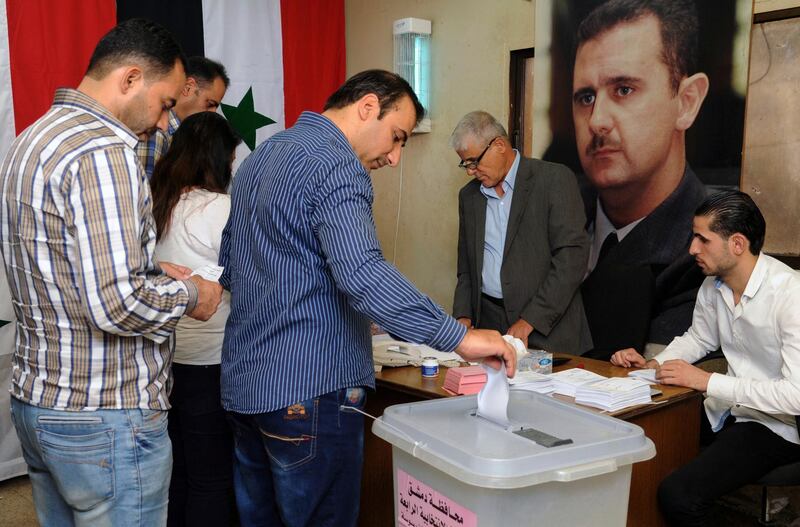Syria held its first municipal elections since 2011 on Sunday, amid tensions with the country's self-administered Kurdish region, which refused to allow polls.
Candidates campaigned on promises to promote reconstruction after seven years of civil war left cities and towns in ruins.
"We hope we can meet the people's aspirations and improve conditions and services in the city," said Hassan Taraqji, a Baath party candidate in Damascus.
The Baath party, which has controlled Syria's political and security apparatuses since the 1960s, was expected to sweep the elections.
______________
Read more:
Syria: Israel launched missile attack on Damascus airport
Russian and Turkish leaders to meet Monday to discuss the fate of Syria's Idlib
Turkish agents launch cross-border raid to seize 2013 bomb suspect from Syrian hideout
______________
The war waged by President Bashar Assad's government against local opposition forces and the Islamic State group has cost the country more than $300 billion in economic damage, according to a recent UN study. Observers say more than 400,000 people have been killed.
But parts of the country remain beyond Damascus' reach, including the US-backed self-administered Kurdish region in north Syria, which also includes Arab and minority populations.
The region is governed by its own Syrian Democratic Council, which refused to allow the Damascus-organided elections to proceed on its territory.
"The regime wants us to remain under its rule and under the rule of the Baath," said Ibrahim Ibrahim, a spokesman for the administration.
Kurdish officials say they want a federalided Syria that respects the northeast's autonomy from Damascus and guarantees rights and privileges for national minorities.
High-level meetings between representatives of the SDC and Baath and federal officials in Damascus are yet to produce a breakthrough.
Damascus insists it will assert its authority over the whole country.
Hussein Dabboul, a Member of Parliament from Aleppo, a north Syrian city near the edges of the self-administration zone, said the SDC was "linked to foreign powers and to the United States, and it has certain objectives and targets."
Human rights groups have criticided the Kurdish-led administration for single-party rule. The administration held local elections in 2017.
More than 40,000 candidates are competing for 18,478 council seats, according to the Ministry of Local Administration. Polls were slated to close at 7 pm local time, but authorities extended voting nationwide until midnight. Sunday is the first day of the workweek in Syria.
Opposition-held areas were excluded from the polls. Some 3 million people of Syria's pre-war population of 22 million live under opposition rule in the country's northwest Idlib province and surrounding areas. Another 5.6 million are refugees abroad; they were also excluded from the vote.
Presidential elections were held in 2014 in limited areas of government control.





